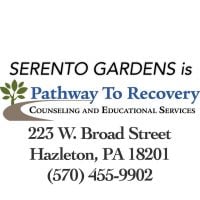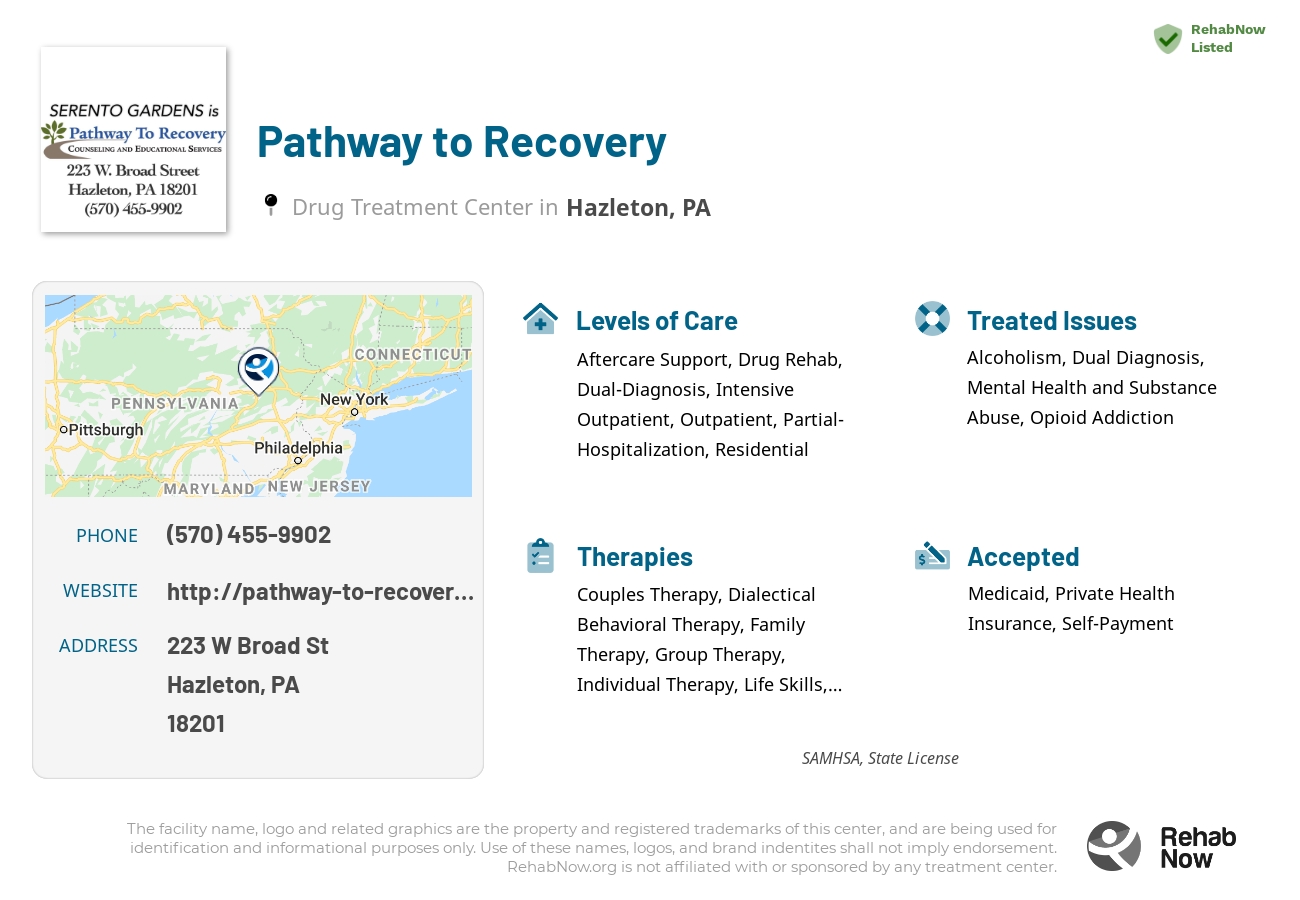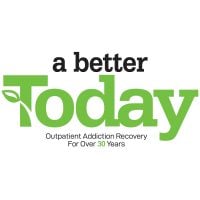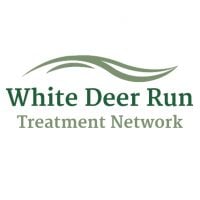Pathway to Recovery
Drug Rehab Center in Hazleton, Pennsylvania
Pathway to Recovery is an accredited addiction treatment facility in Hazleton, PA that offers a comprehensive approach to recovery with intensive outpatient and partial-hospitalization services, medication-assisted detoxification, intervention levels of care and more.
About This Hazleton, PA Facility
Pathway to Recovery, located in Hazleton, Pennsylvania, is a non-profit organization dedicated to providing comprehensive services for individuals struggling with addiction, abuse, mental illness, and co-occurring disorders. Their mission is to offer prevention, education, treatment, and support to all those affected by these challenges.
- Offers a wide range of outpatient services, including support groups, educational programs, and a DUI program
- Provides free nicotine replacement therapy and employee assistance services
- Committed to helping individuals regain control of their lives and achieve lasting recovery
Pathway to Recovery is accredited by SAMHSA and licensed by the state of Pennsylvania, ensuring adherence to the highest standards of care. Their team of professionals is dedicated to delivering quality treatment tailored to each individual's unique needs.
The facility addresses various addictions, including substance abuse and mental health issues, through evidence-based practices and trauma-informed care. Treatment options encompass outpatient services, intensive outpatient programs, and aftercare support, enabling a continuum of care for sustained recovery.
Genders
Ages
Modality
Additional
Accreditations
State License
SAMHSA
Conditions and Issues Treated
Addiction to prescription opioid painkillers like oxycodone and hydrocodone, and illicit opioids such as heroin, leads to potentially life-threatening withdrawal symptoms when discontinued. Opioid addiction treatment typically involves an inpatient stay at facilities like Pathway to Recovery to make sure they get through withdrawal safely. Treatment also includes comprehensive mental health counseling.
Conditions such as anxiety, depression, schizophrenia, bipolar disorder are part of mental illness. This may occur that opioid abuse and vice versa are induced by mental illness. Diagnosing a concurrent diagnosis or co-occurring condition at Pathway to Recovery is essential to understand the addiction better.
Levels of Care Offered
This center offers a variety of custom treatment tailored to individual recovery. Currently available are Aftercare Support, Detox, Drug Rehab, Dual-Diagnosis, Inpatient, Intensive Outpatient, Intervention, Outpatient, Partial-Hospitalization, Residential, with additional therapies available as listed below.
Detox is the primary substance abuse treatment administered to a patient suffering from drug addiction. Detox helps patients in Hazleton, PA recover from drug-addicted through regular monitoring of medical professionals and temporary utilization medication, other techniques.
If you or someone you know suffers from a substance abuse problem, it is crucial to understand the different options available for treatment and seek help as early as possible. These days, detox centers offer several methods for drug and alcohol addiction rehabilitation and treatment.
An intensive outpatient program is a good option for someone in Pennsylvania with a milder or less severe addiction. An IOP may involve daily meetings at a treatment facility, along with personal counseling and peer meetings. Some IOP programs offer half-day treatment, while others offer full-day programs. Pathway to Recovery‘s IOP is customized per individual.
Outpatient programs are the standard for addiction treatment. About 9 in 10 U.S. adolescents entering addiction treatment enroll in these programs, so you’re not alone in Hazleton, PA. Treatment is delivered in different settings – offices, clinics, and primary care clinics.
Facilities offer a variety of services, such as individual and group counseling and family therapy. During the sessions, you work with a team of experts that include: General physicians, Psychiatrists, Social Workers, and Psychologists. The main goals of outpatient recovery programs are to help addicted individuals reduce drug use and addictive behaviors, eventually becoming entirely sober.
Partial hospitalization (PHP) is a type of outpatient addiction care. Each plan is tailored to meet unique individual needs. Treatment is more intense than that you receive at a therapist’s office. It is less intense than inpatient rehab. The entire treatment takes about ten days to complete. It does not require you to stay at the Pennsylvania treatment center. Each visit lasts several hours, sometimes, eight hours. It can be the best choice for those who have recently developed an addiction.
Residential treatment programs are those that offer housing and meals in addition to substance abuse treatment. Rehab facilities that offer residential treatment allow patients to focus solely on recovery, in an environment totally separate from their lives. Some rehab centers specialize in short-term residential treatment (a few days to a week or two), while others solely provide treatment on a long-term basis (several weeks to months). Some offer both, and tailor treatment to the patient’s individual requirements.
An intervention is a planned conversation between an addicted person and their loved ones. Usually, a licensed alcohol and drug counselor or an interventionist supervises the conversation. The presence of a specialist is essential if your loved one has a history of a severe mental disorder, suicidal attempts, abusing mood-altering drugs. A proper intervention is an excellent bridge to an individual’s sobriety.
Aftercare comprises services that help recovering addicts readjust to normal day-to-day Pennsylvania activities. It can last a year or even longer. Services include individual and family counseling, medications to reduce cravings, and treatment of psychiatric and other medical conditions. Aftercare support begins once you have completed earlier stages of treatment.
Pathway to Recovery‘s Therapies & Programs
In addiction recovery at Pathway to Recovery, therapy plays a significant role. This helps patients get to the root of their addiction and discover how the problems that contributed to their use can be handled better. Therapy can be performed in a group and one on one settings. The patient interacts with the therapist in a one-on-one atmosphere during individual therapy. This encourages them to reflect on the underlying addiction problems and develop ways to avoid potential future abuse.
Recovering from addiction involves recovering relationships as well. One of the most common areas of stress and damage during addiction is in intimate relationships. Couples therapy at Pathway to Recovery can rebuild trust and joy that may have been damaged. Addiction involves everyone in the family, not only the addict.
Family roles can change in damaging ways that may require professional help to rebalance. Successful intimate relationships can decrease the chances for relapse by ensuring a healthy environment after rehab in Hazleton, PA.
Addiction and alcoholism affect the entire family. For this reason, family therapy is vital to a person’s recovery from addiction. In contrast to couples counseling, family therapy at Pathway to Recovery may include siblings, children, parents, and other significant people in the recovering person’s life. Family support is one of the most important pillars of recovery.
Many people turn to drugs and alcohol as a way of processing trauma that has affected them in the past. Trauma can include abuse, neglect, the loss of a loved one and other unpleasant incidents. Trauma therapy at Pathway to Recovery helps patients process trauma. It gives them the tools to deal with it in a healthier manner.
Dialectical behavioral therapy (DBT) is a type of Cognitive Behavioral Therapy that focuses on eliminating specific negative thoughts such as suicidal thoughts that can potentially lead to an individual inflicting self-harm. It is useful in the treatment of patients exhibiting uncontrollable emotions, intense mood swings, and borderline personality disorders.
The term “Dialectic” means the integration of opposites. In the substance abuse context, DBT refers to accepting the patient’s addiction and working to change their thoughts and behavior. It improves life skills such as controlling the intense emotions without reacting impulsively, resolving the interpersonal conflicts effectively, and promoting awareness about self and others.
Cognitive Behavioral Therapy (CBT) examines the relationship between a patient’s thoughts, feelings and behaviors. Pathway to Recovery aims to establish a healthy response to thoughts and feelings as an alternative to turning to drugs and alcohol. It also promotes healthy communication between addicts and those around them. It is and effective therapy for people suffering with all types of addictions.
Rational Emotive Behavior Therapy (REBT) is a type of cognitive therapy. It is based on the principle that irrational thoughts are responsible for the emotional and behavioral changes in addiction. So, the therapy starts with identifying the underlying irrational thoughts. These thoughts are then challenged and opposed logically and then replaced with positive thoughts. It also helps to change unwanted behavior with techniques such as meditation.
By imparting positive thoughts and emotions, Rational Emotive Behavior Therapy (REBT) makes the individual self-reliant with a capacity to handle the emotional and behavioral issues in future by themselves without professional help. This self-dependence benefits the patients and prevent relapses.
Life skills pertain to the skill sets a person should possess to become successful in life. Examples are time management, budgeting, and social abilities. Life skills therapy highlights the fact that addiction recovery is more than just a person’s ability to go through their day-to-day without resorting to substance use in Hazleton, PA once they leave the facility.
Payment Options Accepted
For specific insurance or payment methods please contact us.
Is your insurance accepted?
Ask an expert, call (888) 674-0062
Additional Details
Specifics, location, and helpful extra information.
Hazleton, Pennsylvania 18201 Phone Number(570) 455-9902 Meta DetailsUpdated April 15, 2024
Staff Verified
Patient Reviews
There are no reviews yet. Be the first one to write one.
Hazleton, Pennsylvania Addiction Information
Pennsylvania ranks 14th in the nation for drug-related deaths. More than 10% of all deaths in Pennsylvania have been related to drugs and alcohol. 30% of Pennsylvania youth reportedly drink alcohol monthly, with more than 20,000 teenagers having an alcohol problem. The rate of opioid misuse in Pennsylvania is double the national average.
In Hazleton, Pennsylvania, drug addiction is a major problem. According to the National Institute on Drug Abuse, 16.5% of Hazleton residents reported using illicit drugs. Additionally, 10.5 percent of Hazleton residents reported using prescription drugs for non-medical reasons in the past year. Some of the most common treatments include inpatient and outpatient rehab, 12-step programs, and detoxification.
Treatment in Nearby Cities
- Upper Darby, PA (77.9 mi.)
- Saint Marys, PA (138.4 mi.)
- Dallas, PA (26.4 mi.)
- Lansdowne, PA (79.6 mi.)
- Lemoyne, PA (69.0 mi.)
Centers near Pathway to Recovery
The facility name, logo and brand are the property and registered trademarks of Pathway to Recovery, and are being used for identification and informational purposes only. Use of these names, logos and brands shall not imply endorsement. RehabNow.org is not affiliated with or sponsored by Pathway to Recovery.











